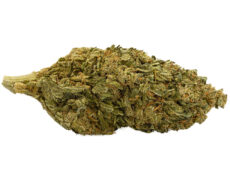Modified on: 28/11/2024
THE LATEST CANNABINOID DISCOVERED: THCV. HOW DOES IT BEHAVE?
Recently, cannabis products (such as the pre rolled joints) have been enjoying increasing success, prompting a great deal of interest from the scientific community.
Despite the substantial prejudice surrounding cannabis, this plant never ceases to amaze us and seems unwilling to settle for the label of a narcotic substance. Indeed, in addition to the well-known psychoactive properties, it can be arousing in those who take it. Moreover, it seems to have therapeutic potential that is increasingly the focus of heated debate.
-
 SMALL & BIG
SMALL & BIGBUBBLEGUM
Indoor | CBD – CBDA <22%
Starting from:EASTER SALE -10%
1,25CHF1,10CHF/gGrams3 5 10 20 50 100 -


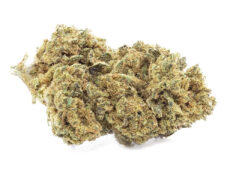
DO SI DOS
Starting from: 2,00CHF/gIndoor | CBD – CBDA < 19%
Grams3 5 10 20 50 100 -


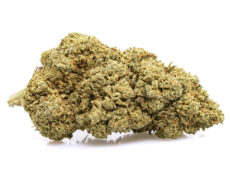
ROYAL GG#4
Starting from: 2,30CHF/gIndoor | CBD – CBDA < 40%
Grams3 5 10 20 50 100 -


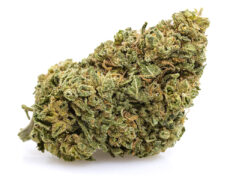
GORILLA GLUE
Starting from: 2,90CHF/gIndoor | CBD – CBDA < 20%
Grams3 5 10 20 50 100
The latest research on marijuana and its components has led to discovery of an additional active ingredient, tetrahydrocannabivarin, with multiple properties.
In this article, I want to tell you about this new cannabinoid (THCV) and its interactions with our organisms.
Read also: Hemp fuel: is it a real option for the future of the green economy?
THCV: what is it?
As I mentioned, tetrahydrocannabivarin is part of the huge family of cannabinoids contained in marijuana.
The similarity of its acronym, THCV, with the well-known THC is no coincidence. The two molecules are very similar in structure. However, the same cannot be said of how they interact with the endocannabinoid system.
Let’s look at how tetrahydrocannabivarin behaves once taken up by the body.
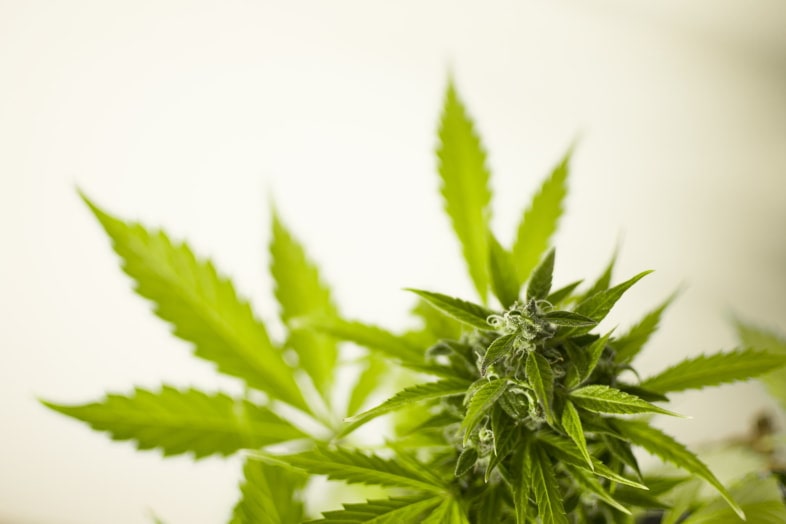

Generally speaking, the cannabinoids present in cannabis – at least as far as the two best known are concerned, CBD and THC – stimulate the reaction of the two receptors CB1 and CB2, in a more or less intense manner on the quantities taken.
THCV, on the other hand, is not quite the same. So we can safely say that this cannabinoid also interacts with the receptors but in a distinct way.
The main difference is that tetrahydrocannabivarin can elicit reactions of a different nature, depending on the quantities taken.
To be even more precise, its effects change depending on the amount put into circulation.
At lower dosages, THCV acts by antagonising CB1 and CB2, effectively attenuating the psychotropic effects of THC. It, therefore, lessens the so-called ‘high’ feeling in common with CBD.
With increasing doses, however, the action of THCV is anything but mitigating the drugging effect. In larger quantities, it, in turn, manifests psychotropic properties, contributing to the typical euphoric state that follows the consumption of cannabis. Under these conditions, THCV puts into action an opposite mechanism to the previous one: it activates the CB1 receptor.
We would not be making a mistake if we were to think of tetrahydrocannabivarin as a cannabinoid that, in a sense, harbours the main characteristics of its two better-known cousins, Cannabidiol and THC, resembling one or the other depending on the amount released into the body.
Let us now look at the main differences between THC and THCV in more detail.
What are the differences between tetrahydrocannabinol and tetrahydrocannabivarin?
Chemically speaking, these two elements have a lot in common. The two molecules have a strikingly similar structure.
However, we begin to see the differences by changing perspective and moving on to the effects generated by these two substances.
Although, as we have anticipated, THCV is capable of exerting the so-called drugging effect typical of marijuana when taken in large doses, it appears that the high is not the same as that induced by THC.
Tetrahydrocannabivarin appears to cause an intense and stimulating effect, but one that is also more lucid and less long-lasting than that caused by THC.
Another aspect that these two very similar molecules do not share concerns their relationship with the stimulation of appetite: THCV appears to inhibit it, unlike THC and the well-known chemical hunger it induces. This aspect seems to be exploited in the management of weight regulation.
Here, then, is a beneficial property of tetrahydrocannabivarin. But is it the only one? Let’s find out together.
Does THCV have beneficial properties? What are they?
It is hardly news that cannabis and its components are rich in beneficial properties. And guess what? Tetrahydrocannabivarin is no different.
As I told you, its ability to inhibit appetite is already known, but it is certainly not the only one.
THCV proves to be on a par with its predecessors, THC and the CBD cannabinoid, displaying pronounced anti-convulsive, anti-inflammatory and neurodegenerative properties.
But how?
The issue of weight loss is directly attributable to the inhibitory action of the CB1 receptor, which is responsible for the sense of appetite.
This makes THCV a potential ally in the treatment of various eating disorders. In addition, according to recent research, an increase in energy expenditure has also been observed in mice administered THCV, resulting in weight loss.
But tetrahydrocannabivarin’s potential does not end there.
There is speculation that it is also effective against epilepsy, given its anticonvulsant properties.
According to a study on a sample of rats suffering from a particular form of epilepsy published in the journal Epilepsia, the molecule seems to have particularly beneficial effects in treating states of hyperexcitation.
According to other studies, THCV administration also stimulated the inflammation of the hind legs of several rat specimens, visibly reducing swelling and perceived pain.
Finally, we also mention the inhibiting effect on neurodegenerative processes underlying many diseases, such as Parkinson’s disease. According to further research, administration of the molecule in mice suffering from this very disorder resulted in a marked improvement in symptoms and a significant slowing of the disease’s progression.
In addition, a pronounced antioxidant action is shown.
As you may have noticed, the studies carried out so far are encouraging, although similar research on human subjects has not yet been completed.
So, in conclusion, what are the effects of THCV on the body?
The discovery of this additional cannabinoid, tetrahydrocannabivarin, again highlights beneficial properties attributable to cannabis and its components.
In particular, researchers have observed how this substance can change its action on CB1 and CB2 receptors depending on the size of the dose in circulation.
If, in fact, at high doses, it behaves similarly to the well-known THC, in smaller quantities, it appears to share the inhibitory function hitherto attributed only to CBD.
The studies conducted on THCV are still limited to observing the effects induced in mice. Still, there is no lack of grounds for believing that tetrahydrocannabivarin can also make a difference in humans.
If you want to learn more about the world of CBD cannabis, I recommend you to have a look to our Justbob.ch portal, a leader in the sale of collectable cannabis, such as CBD hash, CBD flowers and CBD oil.
We are waiting for you in our CBD flower shop!



